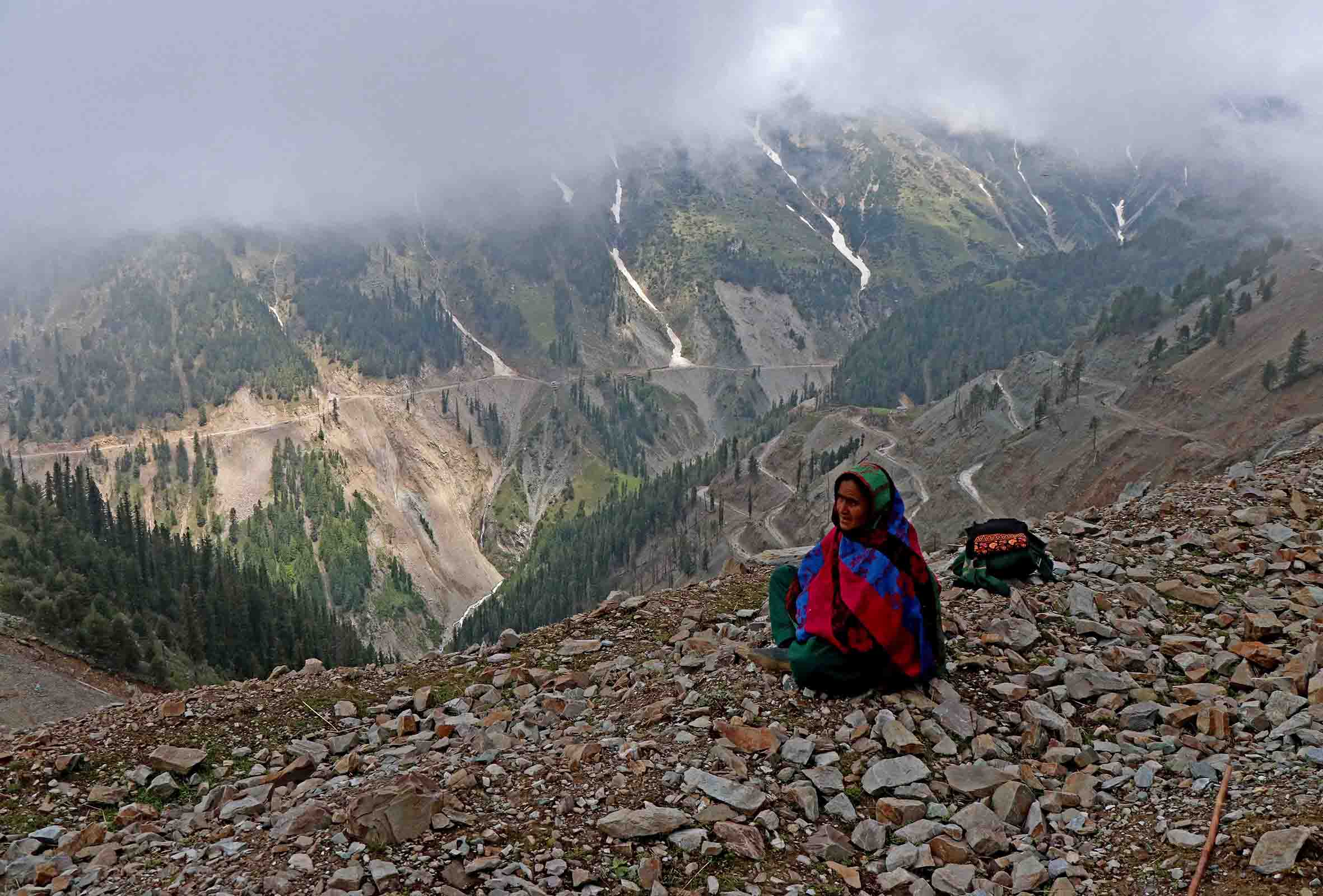by Hashim Bilal
SRINAGAR: For thousands of herders and residents inhabiting inaccessible mountainous regions, childbirth presents unique challenges, met with resilience and traditional practices. Communities, distant from urban resources, rely on community support and time-tested methods to ensure safe deliveries.
“When a mother falls ill and enters labour, we reach out to a midwife who employs traditional techniques, drawing from generations of wisdom,” Muneer Khan, a Neel Top resident in Ramban, said. “If we deem it unsafe to proceed with customary practices, we transport her to the nearest hospital, a challenging task that involves constructing a carriage and carrying her across the rugged mountain terrain.”
Khan explains that in urban areas, expectant mothers typically undergo medical care throughout pregnancy. However, mountain dwellers, face challenges accessing hospitals regularly due to their remote lifestyle. Instead, they rely on traditional methods like herbal remedies and wild medicinal plants to prevent infections during pregnancy.
Bashir Ahmad, a resident of Reasi, adds that they create antibiotic medicines from wild herbs, administering them to mothers once a week throughout the nine month

s. He mentions that these medicines serve as both antibiotics and anti-infection remedies, often taken with milk during pregnancy.
Sulaiman Khan, another Neel Top resident, notes that their community offers crucial assistance when needed. He explains that whether it’s carrying patients to the hospital on their shoulders or providing horses and essential supplies when natural childbirth isn’t feasible, they are always ready to help.
“Our physical and mental resilience, shaped by our mountain environment and lifestyle, distinguish us from women in the plains,” adds another resident of Neel Top.
Iqbal Khan, a traditional Hakeem, explains that they trust herbal medicines, considering them more effective than modern alternatives. He elaborates that one remedy they use is kuth, made by boiling large leaves from wild plants found in the forest until the water turns red.
Muneer, another resident from Ramban, highlights the community’s reliance on Hakeem for additional medical guidance. He emphasises that dosages are tailored to individual conditions and explains that they prepare traditional dishes to ensure the mother’s nutrition. Muneer cites the example of Maida Sakk, a mixture of Sakka, wheat flour, sugar, ghee, and jaggery consumed during pregnancy.
Bashir notes the community’s practice of obtaining herbal remedies from Bakerwals, nomads who gather them from wild forests during their travels. He believes these remedies offer solutions for various ailments.
Iqbal Khan mentions that when the mother gives birth, they immediately administer a medicine called kufl to prevent the accumulation of toxic substances in the womb, which could be fatal.
Muneer Khan explains that after a challenging yet resilient journey, supported by their community and the strength gained from mountain life, they welcome newborns with tears of joy and gratitude. He mentions that three days post-childbirth, they prepare traditional dishes and invite the community for a feast.
Aisha adds that they take a herbal-infused bath three days after the baby’s arrival.
“While we are content with our lifestyle, we recognise the need for emergency assistance when natural childbirth becomes impractical,” states Muneer Khan.
India’s healthcare system guarantees women free medical services related to childbirth. However, national statistics reveal approximately 56,000 annual maternal deaths due to pregnancy-related complications.
According to the National Health Mission, a government initiative addressing the health needs of rural areas, only about 50 per cent of tribal people can access public health institutions.
Research from 2018 to 2020 indicates the widespread use of medicinal plants for pregnancy and childbirth in Jammu and Kashmir’s Baramulla district. Local women rely heavily on these remedies for various pregnancy-related issues, though risks exist due to potential toxicity. Further scientific studies are required to validate the safety and efficacy of traditional remedies, and health education is vital to inform women about potential risks during pregnancy.















